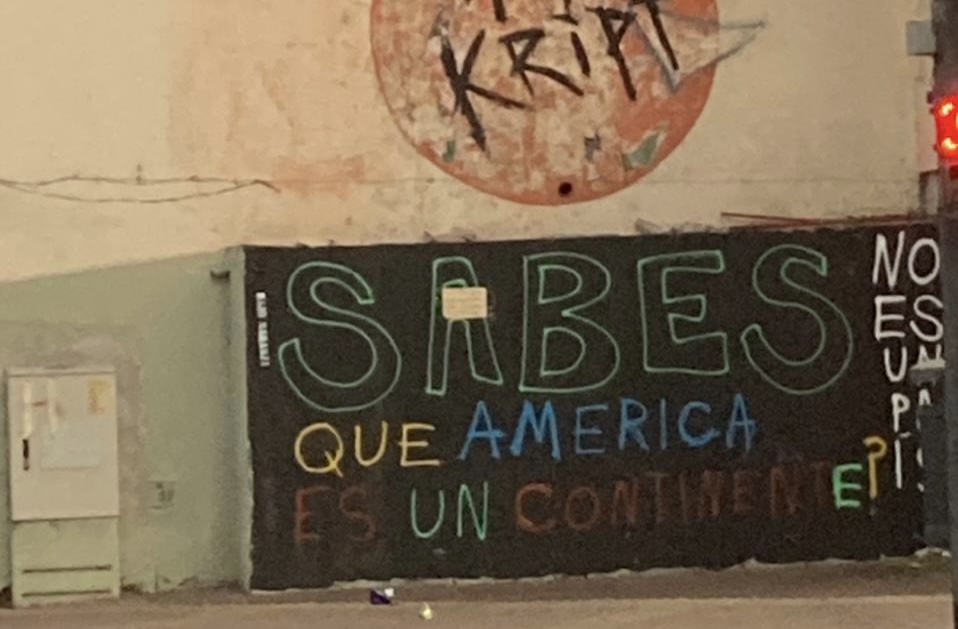Hearing about what Argentines thought about the United States was fascinating. I was able to have conversations with two members of my host family: Lautaro, a 20 year old male, and Natalia, my host mother. With Natalia I discussed what it meant to be “American.” She expressed frustration with the divide between North and South America and, jokingly, refused to acknowledge that they were two separate continents. I noticed that many people in Natalia’s generation shared this sentiment. Her boyfriend, Alejandro, for example also held this view.
Additionally, in this blog post is an image my friend and I captured of street graffiti saying, “Sabes que America es un continente? No es un país.” Translated, this means “Did you know that America is a continent and not a country?” This belief reveals that Americans can be perceived by the public as somewhat self-centered and closed-minded. It also could refer to the common error that many people who visit Argentina from the United States make in referring to themselves as “Americanos” rather than “Estadounidense.” This mistake is considered offensive because many Argentines also consider themselves Americans (referring to the continent), so it is correct for people from the United States to refer to themselves as being from the US.
It is important to note, however, that Natalia spoke very fondly of the United States and of the US people in general. She has had great experiences in New York City, since her ex-husband owned property there. She enjoys watching films that take place in New York and even purchases her silverware and cooking supplies from there when she visits. She does admit, though, that the people from Buenos Aires are generally speaking more friendly than New Yorkers.
In my conversation with Lautaro, we also discussed what it meant to be American, but he held more lighthearted views on people from the US referring to themselves as “Americans.” He was excited to hear my thoughts on the overturning of Roe v. Wade that had just happened a week into my trip. I was also able to have lengthy conversations about American political issues with three Argentinian women who were also 20 years old (Malena, Sol, and Catalina). The girls were appalled at the overturning of Roe v. Wade, but were not surprised considering the gun violence that has been present in world media in these past few months. They thought that many Americans are numb to the world around them and indifferent to the big political issues and the lives being lost.
Throughout all of my conversations with Argentines about their opinions on the United States, they were respectful and kind to me. Most of the conversations I had included something along the lines of “Argentines will welcome you and treat you as equals, but when roles are reversed, and Argentines are in the US, they are not treated so kindly.” I will admit that I was blown away by the hospitality that the Argentine people showed me during my month in Buenos Aires.
